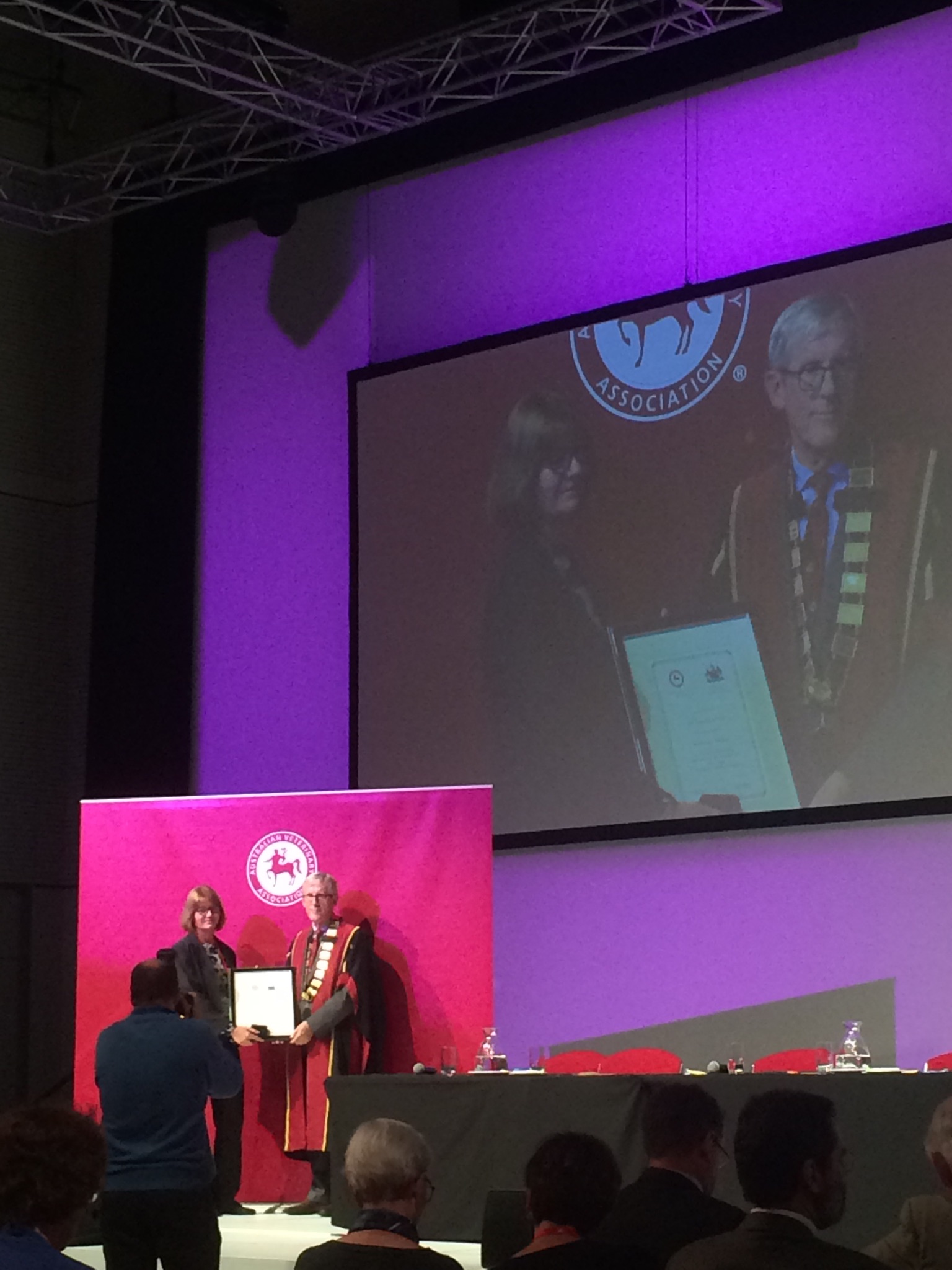
A University of Queensland veterinary virologist who is playing a key role in reducing animal diseases in developing countries has received the prestigious Kesteven Medal at the national Australian Veterinary Association 2016 conference in Adelaide.
Associate Professor Joanne Meers of UQ’s School of Veterinary Science will be awarded the medal tonight for “distinguished contributions to international veterinary science by providing technical and scientific assistance to developing countries.”
Associate Professor Meers said she was honoured and humbled to receive the award.
Head of School Professor Glen Coleman congratulated Dr Meers and said her research brought further credit to the School, which this year celebrates its 80th anniversary.
“Joanne joined the University as a senior lecturer in veterinary virology in 2000, and was appointed Associate Professor in 2007. She is the School’s Director of Research and previously was our postgraduate coordinator.
“Her research has benefited people across the globe, from demonstrating the economic and biosecurity benefits of a thermostable Newcastle disease vaccine for chickens of smallholder farmers in Myanmar, to capacity building and the increased development of diagnostics of viral diseases of livestock, or to leading a greater understanding of the role domestic ducks play in avian influenza in Vietnam and Indonesia.”
Her AVA citation reads:
Dr Meer’s career reflects a lifetime commitment to international veterinary science. While a recent graduate, Jo served as a volunteer in the Cook Islands offering the country’s first veterinary service supporting pigs, goats and small animals. She has demonstrated excellent engagement and collaboration with colleagues in developing countries, including Mozambique, Lao PDR, Vietnam, Myanmar, Indonesia and the Philippines over a sustained period.
Jo is passionate about improving the livelihoods of smallholder producers, who are typically of lower socio-economic status, in developing countries. This is exemplified through her contributions to projects supporting improved animal health and productivity outcomes for small holder pig producers in the Philippines, and through development of practical approaches to the control of Newcastle Disease in chickens in a range of countries.
Ostensibly, Jo’s major contributions to international veterinary science have been to bring her very considerable experience as a virologist to bear on a range of livestock and biosecurity (diagnostic) challenges in developing countries. This work has been in the area of applied research as well as capacity building. In spite of her undoubted technical excellence however, Jo’s most substantive contributions to international veterinary science have been through her exceptional interpersonal skills, integrity, respect and passion for improving the livelihoods of smallholder producers.
Dr Meers provides a wonderful example of a highly motivated, highly skilled veterinarian who brings a remarkable capacity to use high level skills in the training and upskilling of colleagues in the developing world. She combines excellence as a veterinary virologist with a personal warmth and kindness that her colleagues across diverse cultures recognise and appreciate. When these technical and personal skills are then supplemented by the professional leadership skills of Dr Meers, the final combination is a unique person.
Media: Associate Professor Joanne Meers, j.meers@uq.edu.au, +61 7 54601 839.



